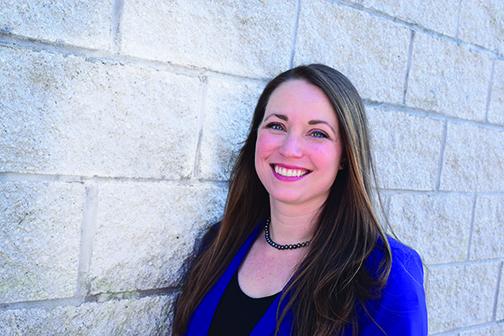Demarest ’05M Brings Closure to Families of Fallen Soldiers

For the past four years of her fifteen year career at the Armed Forces DNA Identification Laboratory (AFDIL), Forensic Science alumna Julie Demarest ’05M has worked to help families of missing soldiers from World War II, the Korean War, Vietnam War, and Cold War.
As the Technical Leader of the Family Reference Sample and Laboratory Automation Group at AFDIL, which is a division of the Armed Forces Medical Examiner System, Demarest and her team process DNA provided by families of missing soldiers to help identify unknown remains.
“We process the living relative’s DNA and we look very specifically at certain types of DNA markers where the comparisons can be made between that living person and the remains,” said Demarest. “I really love our mission and the unique work that we do, which is the identification of these fallen service members from the previous conflicts. We take it seriously that no man is left behind.”
Demarest said that families use self-test kits at home to submit DNA samples that are processed by her team. From there, the DNA is compared to recovered remains. In the next two months, Demarest and her team will start a new procedure for processing DNA that will provide more information for analysis. The current procedure uses the control region of mitochondrial DNA, which is only a small portion of the genome. With the new procedure, they’ll be able to look at the whole mitochondrial genome, which will provide more information for comparison.
“It’s a newly validated procedure that is a huge advancement in terms of technology for the type of processing we’re going to be doing,” said Demarest. “I’m very excited to get that online and see how it changes our case work.”
As a member of the first graduating class of the Master of Science in Forensic Science program, Demarest credits the hands-on experiences at Arcadia for helping her find this career path. As an intern at NMS Labs in 2005, she worked with scientists to process forensic evidence for criminal cases. At that time, it wasn’t a path she wanted her career to follow. However, her mentor at NMS provided learning opportunities and connected her with the Armed Forces DNA Identification Laboratory, where she started in September 2005—just three months after graduation.
“The entire time I was getting real world experience,” said Demarest. “I got to see how a real lab worked and the day-to-day of criminal forensic science. Through the program, I got to attend scientific meetings that helped me get the job and be here today.”


